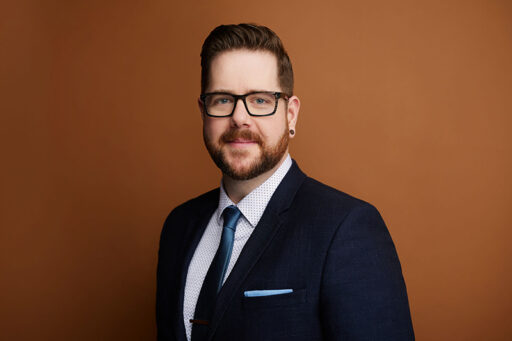College Blog
The Ontario Clinical Exam (OCE) officially launched in October 2022, and we have since held several successful administrations of the exam, allowing more than 1,421 candidates to complete the OCE to date.
The success of the OCE wouldn’t be possible without the help of the physiotherapy community. From exam development, through the first hybrid exams, to the current fully virtual exams, physiotherapists have been with us every step of the way. Most notably, more than 210 physiotherapists have signed on to work as OCE examiners, delivering exams in both English and French.
Simply put, we wouldn’t be able to run the exam in its current capacity without the support and dedication of our examiners. Being an examiner is just one of the ways that physiotherapists can get more involved in regulatory activities. While we rely on the examiners’ knowledge and expertise to help us administer the exam, we’ve learned there are several professional and personal benefits for the examiners as well.
For this month’s blog, we spoke with two examiners to get a better understanding of what it’s like to be an examiner, what they enjoy most about the role, and what advice they would share with other PTs who are interested in getting more involved.
What inspired you to become an examiner for the Ontario Clinical Exam?
KL: I started off as an examiner for the Canadian Alliance of Physiotherapy Regulators (CAPR) and I found it really interesting to be able to better understand what that process looks like and what is considered entry level competencies. It also added a bit of variety to my work life and a little bit of extra income on the side.
KM: I was drawn to the examiner role for several reasons, but primarily to help address the shortage of licensed physiotherapists due to the backlog of PT students unable to complete the exams during COVID. In past years, my distance from Toronto prevented me from being able to participate in previous exams. With the exam being conducted virtually, I am thrilled to now be able to participate easily.
What do you enjoy most about being an examiner?
KL: I think it helps me understand my own role and my own profession on a deeper level. It helps bring me back to basics sometimes and also helps me better understand how to mentor and support PT Students.
KM: I enjoy being able to take some responsibility in increasing the number of licensed PTs in Ontario. I also enjoy the opportunity to review my knowledge (in some cases, increase my knowledge!) in a variety of physiotherapy-related areas, because of the preparation required before each exam. I also really enjoy the satisfaction of seeing candidates make it through the exam successfully, recognizing the amount of preparation that was required of them.
What’s the most challenging thing about being an examiner?
KL: Hands down it’s when you have a candidate who is not doing so well. It’s hard to watch and partake in. I always remind myself that I’m not determining a pass or fail, I’m just marking down what I’m hearing.
KM: The most challenging part is ensuring that I am actively listening at all times and actually hearing the answers that I think are being provided. We need to listen well enough to be able to know whether the appropriate entry-to-practice knowledge is being relayed, while keeping the candidate on track to finish the full exam in the required timeframe. The examiner also needs to have a lot of confidence in their own knowledge across a broad variety of areas to recognize when they are hearing the information that is being sought.
What has the College done to help you feel supported in this role, and how would you rate the level of support overall?
KL: I would rate the level of support very highly. College staff are always very responsive to questions and concerns. The pre-exam training is always awesome in terms of making sure everyone is on the same page. On exam day everyone is always extremely helpful, and it makes me feel confident that there will be a quick resolution if I or the candidate ever experience any challenges.
KM: The College has done a remarkable job in supporting the examiners and I honestly can’t think of anything that they could be doing better. The training is very thorough and is provided at adequate frequencies. We are always very well supported, both during the training but most importantly during the exam itself. Our responsibilities are so high during the exam that it’s a huge relief to know there is always immediate support provided to the candidates and examiners.
We know that physiotherapists are extremely busy… how have you successfully managed being an examiner along with other professional and personal commitments?
KL: This year the majority of the exams have been Friday and Saturday, so it has been a bit more challenging for me to do exams this year, but I will usually take a vacation day from work to cover the exam day or the pre-exam training day that falls during the week.
KM: Like most things in life, prioritizing what’s most important is essential. The examiner role needs to be taken very seriously to ensure all candidates receive the same opportunities to succeed. As a result, I make sure that when an exam is approaching, it becomes the priority in my life. The College has done an excellent job of setting up the training so that it’s highly concentrated – making the total preparation time for each exam as short as possible.
What advice would you have for another physiotherapist who is considering getting more involved with the College, either as an examiner or in another capacity?
KL: It’s worth giving it a try! It’s interesting what you end up getting out of it and it’s not always what you think you’ll get out of it. If you’re worried about being responsible for someone or passing or failing the exam, remember that it’s not all on you. You’re working with a partner examiner and even then, it’s not your decision about a pass or fail, you’re just recording what you’re hearing. Personally, my role as an examiner has helped me to better understand certain responsibilities as a physiotherapist, like record keeping. This has helped me feel better prepared in my practice and for the Quality Assurance screening interview.
KM: The benefit of becoming more involved with the College is the increased knowledge that is gained through participating in any of the roles. This knowledge can often be translated into improving clinical practice. You also have the opportunity to network with other PTs across the province. I would add that you need to self-reflect on your own work-life balance to know if the timing is right for you to take on the added responsibility that a role with the College requires. If it isn’t, recognize that and trust that you will find time in the future, if you’re still interested.
Is there anything else you would like to add?
KL: We as physiotherapists have a responsibility to maintain the quality of our profession, and we should consider actively participating in who is deemed competent and what competency standards look like. If we want to continue to advance the quality of our profession, then we need to continue to participate in these competency assessments to be able to have a say.
KM: As an examiner, the value of having a co-examiner is priceless. To know that when the exam is over, and it’s time to confirm the marking, you have another person to collaborate with makes the process less stressful.
The College recruits new examiners on an as-needed basis. Keep an eye on the Perspectives newsletter and social media accounts for open recruitment calls. Learn more about the Ontario Clinical Exam and the role of an examiner on the website.









Hi, what is the rate of pay for an examiner?
Thanks,
Genevieve
Hi Genevieve,
Examiners are paid an hourly training rate of $49 for participation in training activities like the New Examiner Training and the Pre-Exam Training, and an hourly rate of $65 for exam days.
I am very interested in becoming an examiner, after reading this blog.